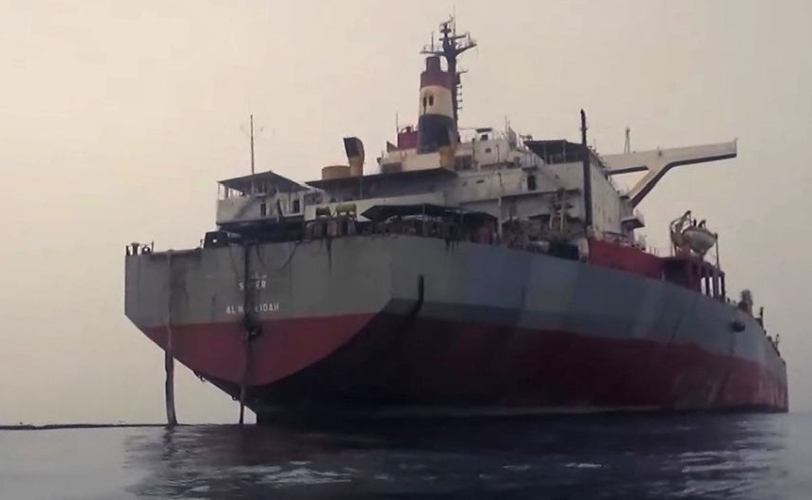The United Nations Development Programme (UNDP) bought a very large crude carrier (VLCC) from Euronav on 9 March. This is part of the UN-coordinated operation to remove more than a million barrels of oil from the decaying tanker FSO Safer off Yemen’s Red Sea coast.
The FSO Safer could cause a humanitarian and environmental catastrophe if the oil is not removed before the ship deteriorates further and an oil spill ensues. The UN will send another vessel to remove the oil.
This replacement vessel is now in dry dock for modifications and regular maintenance before sailing to the FSO Safer, moored about nine kilometres off Yemen’s Ras Isa peninsula. It is expected to arrive in early May for the operation.
Also read: Removing oil from FSO Safer off Yemen step closer after Netherlands provides additional funds
Conflict prevents maintenance
The FSO Safer has not been maintained since 2015 because of the conflict in Yemen. It has decayed to the point where there is an imminent risk it could explode or break apart, which would have disastrous effects on the region. A major spill would devastate fishing communities on Yemen’s Red Sea coast, would expose communities to toxins and result in air pollution.
It would also result in the closure of the ports of Hodeidah and Saleef – which are essential to bring supplies into Yemen. Desalination plants would close, cutting off a water source for millions of people. Oil from the Safer could reach the African coast and affect any country on the Red Sea. The environmental impact on coral reefs life-supporting mangroves and other marine life would be severe. Fish stocks would take 25 years to recover.
The cost of cleanup alone is estimated at USD 20 billion. Disruptions to shipping through the Bab al-Mandab strait to the Suez Canal could cost billions more in global trade losses every day, as happened after the Ever Given grounded in the Canal in 2021.
Smit hired to remove oil
The UNDP, which is implementing the high-risk operation as part of the UN-coordinated initiative, is contracting marine salvage company Smit, a subsidiary of Boskalis, to safely remove the oil and prepare the Safer for towing to a green scrapping yard.
‘The purchase of this suitable vessel by UNDP marks the beginning of the operational phase of the UN-coordinated plan to safely remove the oil from the Safer and avoid the risk of an environmental and humanitarian disaster on a massive scale,’ says UNDP Administrator Achim Steiner. ‘We must accept that this is a very challenging and complex operation. UNDP is working around the clock with experts from UN sister agencies including IMO, WFP and UNEP among others as well as international consultancies on maritime law, insurance and environmental impact to ensure that we are deploying the best possible expertise to successfully complete this operation.’
Also read: Boskalis concludes 2022 with record order book
Crowdfunding
While the project to remove the oil has received significant international support, spiralling costs mostly related to the war in Ukraine that triggered a significant price increase in the market for suitable vessels to undertake the operation, mean more money is still needed to complete the emergency phase of the plan.
As of 7 March, the UN has raised USD 95 million, of which USD 75 million has been received. The total budget for the emergency phase of the project is USD 129 million. To fill the budget gap, the UN is re-launching a crowdfunding appeal which saw thousands of individuals around the world contribute to the FSO Safer project in 2021. To learn more, visit www.un.org/StopRedSeaSpill.
Picture by the United Nations Resident Coordinator Office.








